I am using WinVerifyTrust to verify the validity of some Windows executables with the following function, called in a loop from _tmain:
int signature_is_valid(const wchar_t *filepath) {
GUID guid = WINTRUST_ACTION_GENERIC_VERIFY_V2;
WINTRUST_FILE_INFO file_info = { 0 };
WINTRUST_DATA wd;
file_info.cbStruct = sizeof(file_info);
file_info.pcwszFilePath = filepath;
file_info.hFile = NULL;
file_info.pgKnownSubject = NULL;
ZeroMemory(&wd, sizeof(wd));
wd.cbStruct = sizeof(wd);
wd.dwUIChoice = WTD_UI_NONE;
wd.fdwRevocationChecks = WTD_REVOCATION_CHECK_NONE;
wd.dwUnionChoice = WTD_CHOICE_FILE;
wd.dwStateAction = 0;
wd.pFile = &file_info;
wd.dwProvFlags = WTD_REVOCATION_CHECK_CHAIN_EXCLUDE_ROOT | WTD_CACHE_ONLY_URL_RETRIEVAL;
return 0 == WinVerifyTrust(NULL, &guid, &wd);
}
However, with every loop the memory keeps growing, a sure sign of a memory leak.
Is there a problem with my understanding of the API or is the WinVerifyTrust function actually leaking? I am testing this on a Windows XP Professional SP3 system.
EDIT:
Here is some output from umdh:
+ 16812 ( 16992 - 180) 472 allocs BackTraceAD1
+ 467 ( 472 - 5) BackTraceAD1 allocations
ntdll!RtlDebugAllocateHeap+000000E1
ntdll!RtlAllocateHeapSlowly+00000044
ntdll!RtlAllocateHeap+00000E64
kernel32!LocalAlloc+00000058
CRYPT32!operator new+00000011
CRYPT32!I_CryptCreateLruEntry+00000011
CRYPT32!CreateAuthRootAutoUpdateMatchCaches+00000107
CRYPT32!CCertChainEngine::FindAuthRootAutoUpdateMatchingCtlEntries+0000004D
CRYPT32!CChainPathObject::GetAuthRootAutoUpdateUrlStore+000000C9
CRYPT32!CChainPathObject::CChainPathObject+0000030E
CRYPT32!ChainCreatePathObject+00000050
CRYPT32!CCertIssuerList::AddIssuer+0000006A
CRYPT32!CChainPathObject::FindAndAddIssuersFromStoreByMatchType+00000182
CRYPT32!CChainPathObject::FindAndAddIssuersByMatchType+00000096
CRYPT32!CChainPathObject::FindAndAddIssuers+00000023
CRYPT32!CChainPathObject::CChainPathObject+000001F9
CRYPT32!ChainCreatePathObject+00000050
CRYPT32!CCertIssuerList::AddIssuer+0000006A
CRYPT32!CChainPathObject::FindAndAddIssuersFromCacheByMatchType+00000084
CRYPT32!CChainPathObject::FindAndAddIssuersByMatchType+00000023
CRYPT32!CChainPathObject::FindAndAddIssuers+00000063
CRYPT32!CChainPathObject::CChainPathObject+000001F9
CRYPT32!ChainCreatePathObject+00000050
CRYPT32!CCertChainEngine::CreateChainContextFromPathGraph+0000019E
CRYPT32!CCertChainEngine::GetChainContext+00000044
CRYPT32!CertGetCertificateChain+00000060
WINTRUST!_WalkChain+0000019C
WINTRUST!WintrustCertificateTrust+000000B7
WINTRUST!_VerifyTrust+00000144
WINTRUST!WinVerifyTrust+0000004E
SigTest!signature_is_valid+000000DD
+ 10984 ( 10984 - 0) 2 allocs BackTraceBB3
+ 2 ( 2 - 0) BackTraceBB3 allocations
ntdll!RtlDebugAllocateHeap+000000E1
ntdll!RtlAllocateHeapSlowly+00000044
ntdll!RtlAllocateHeap+00000E64
kernel32!LocalAlloc+00000058
CRYPT32!PkiDefaultCryptAlloc+00000011
CRYPT32!CertFindCertificateInCRL+00000051
cryptnet!MicrosoftCertDllVerifyRevocation+00000250
CRYPT32!I_CryptRemainingMilliseconds+0000021B
CRYPT32!CertVerifyRevocation+000000B7
CRYPT32!CChainPathObject::CalculateRevocationStatus+000001F2
CRYPT32!CChainPathObject::CalculateAdditionalStatus+00000147
CRYPT32!CCertChainEngine::CreateChainContextFromPathGraph+00000227
CRYPT32!CCertChainEngine::GetChainContext+00000044
CRYPT32!CertGetCertificateChain+00000060
WINTRUST!_WalkChain+0000019C
WINTRUST!WintrustCertificateTrust+000000B7
WINTRUST!_VerifyTrust+00000144
WINTRUST!WinVerifyTrust+0000004E
SigTest!signature_is_valid+000000DD
SigTest!wmain+00000073
SigTest!__tmainCRTStartup+000001A8
SigTest!wmainCRTStartup+0000000F
kernel32!BaseProcessStart+00000023
It seems to me that the CRYPT32 functions are the ones leaking... or I'm missing something.
EDIT2
Here is the memory evolution for some thousand loops:
